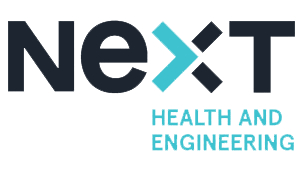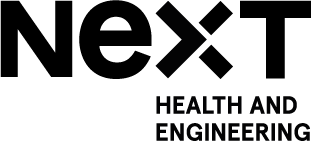EUNI AI WS: 1st EUniWell mini-workshop series - Impact of Artificial Intelligence on Healthcare and Education: trustworthy technology, ethical and legal dimensions
SHORT VIDEO PRESENTING THE PROPOSAL
https://uncloud.univ-nantes.fr/index.php/s/FkBWSwtoccw4RR4
1. PROPOSAL AT A GLANCE
Why: The development of AI in health care is a challenge for institutions, researchers, practitioners, teachers and students alike.
What: Our goal is to organize a core for Artificial Intelligence (AI) multi-disciplinary collaborators within Euniwell. Together we shall study the impact of AI on education & healthcare from the social, ethical & legal perspectives.
How: To do so, we shall organize a miniseries of “meet-up” workshops in January- February 2023, these workshops will release a set of mini-video showing the diversity of answers to common questions and knowledge shared. The workshop shall be grounded in EUniwell research published.
Next: 2nd session and/or pave the way for joint application to research funds (H2020 or so Horizon Europe)
2. AIMS & OBJECTIVES
These workshops aim to discuss the development and use of technology, particularly different forms of Artificial Intelligence (AI), and their potential impact from the social, ethical, and legal perspectives.
The workshops shall focus on the impact of AI technologies on university education in healthcare and clinical practice, key themes of EUniWell and pillars of foundational European values.
(Target audience)
There are three types of target audience in these workshops: students, teachers, and researchers. Students who are concerned about the impact of AI and automatic data analysis, used by healthcare and education institutions, might have in their life. University teachers from medical schools are interested in including AI technology in class but concerned about their ethical and legal impact. Researchers from AI, healthcare, law and social sciences are interested in trustworthy and ethical aspects of Artificial Intelligence.
(General content)
During the workshops, the attendees will have a general vision of AI technologies and existing initiatives made by Europe on the ethical and legal frameworks. To illustrate the different challenges, different use cases will be presented from the education and healthcare fields.
(Benefit of the workshops to attendees)
Attendees will gain a better understanding of the different forms of AI, being aware of their benefits, limitations, and risks.
These workshops shall provide researchers with an opportunity to share their own experiences with the view to give guidance for a future guideline/framework about trustworthy AI in EUniWell institutions and build new networks with researchers from and beyond EUniWell to future collaborations.
3. PROGRESS TO DATE & EXPERIENCE
The partners engaged in this proposal are running a wealth of initiatives focused on health and data/AI:
Health Data Sweden (1 of 4 European Digital Innovation Hubs in Sweden) https://lnu.se/en/meet-linnaeus-university/collaborate-with-us/projects-and-networks/health-innovation-of-sweden-hios/
CONFAINCE National Project aiming at including AI as part of the chain of trust https://www.um.es/confaince/
Soli-Data-Rity: https://www.euniwell.eu/news-events/events/detail/euniwell-open-lecture-series-soli-data-rity
DELPHI: https://next-isite.fr/delphi/
E-health – Improved data to and from patients https://lnu.se/en/research/searchresearch/ehealth--improved-data-to-and-from-patients/
4. PARTNERS ENGAGED
The workshops shall be organized by researchers from 5 institutions from the EUniWell network together with an associated hospital. These partners have different backgrounds in engineering, healthcare, data science, social science and law. This interdisciplinary consortium has a common interest in the study of Artificial Intelligence in the healthcare field.
University of Murcia: Laboratory of Medical Artificial Intelligence and Medicine Faculty
Jose M. Juarez PhD is associate professor at the Dept. Information and Communication Engineering, University of Murcia. His research interests are Artificial Intelligence in general and in its uses in healthcare. In recent years he has focused on eXplainable methods for Artificial Intelligence (XAI) and the use of trustworthy AI in medical problems.
+ INFO: https://webs.um.es/jmjuarez/
Miguel Fernández-Villacañas MD PhD, is associate professor at the Faculty of Medicine in the Department of Human Anatomy, Universidad de Murcia. His working interest is medical education and Patient safety by means of Clinical Simulation and AI to improve clinical skills in medical and nursing students.
Nantes Université: Prof. PA Gourraud, co-head of DELPHI Cluster
Pierre-Antoine Gourraud is a university professor, hospital practitioner at the Faculty of Medicine of Nantes University (France). He is an Ecole Normale Supérieure de Lyon’s (France) alumni in the Biology Department. He arrived as a post-doctoral researcher from the Department of Neurology at the University of California (UCSF, USA) and left as an associate professor in 2018. Author of more than 160 publications cited more than 10000 times (h-index 52), his research activities are at the crossroads of immunology, genetics and health data processing. Close to the entrepreneurial world, he has been working with several health and biotechnology companies, providing them with the benefit of his expertise.
Leiden University: Prof. Marco Spruit, Translational Data Science in Population Health.
Marco Spruit is professor at Translational Data Science in Population Health at the department of Public Health & Primary Care (PHEG) of the Faculty of Medicine (LUMC) and the Leiden Institute of Advanced Computer Science (LIACS) at the Faculty of Science (FWN) of Leiden University in the Netherlands. He is interested both in translating new algorithms and modelling techniques (e.g., data twins, inclusive NLP) to novel health applications as in implementing new insights from these novel applications into daily practices.
Linnaeus University Centre for Data Intensive Sciences and Applications (DISA, https://lnu.se/disa)
Welf Löwe is professor in Computer Science, Senior Lecturer Alisa Lincke in Computer Science and Senior Lecturer Tora Hammar in Health Informatics are all three senior researchers involved in the research environment DISA at Linnaeus University working together on several cross-disciplinary projects related to AI and health and have also been involved in courses for professionals related to AI for managers/ AI for medical doctors.
Semmelweis University: departments of Medical Sociology and General Medicine.
Edmond Girasek Ph.D. Department of Medical Sociology, Institute of Behavioural Sciences, Faculty of General Medicine, Semmelweis University. Edmond Girasek is sociologist at the Department of Medical Sociology. Senior lecturer in Faculty of General Medicine of Semmelweis University. His special interest is the importance of digital health, data and artificial intelligence in health and medicine, the health care systems. He is a member of the Digital Health Solutions in Medicine (D.E.M.O.) Project team.
Dr. iur. Orsolya Marta Peter PhD, LLM, Department of Bioethics, Institute of Behavioural Sciences, Faculty of General Medicine, Semmelweis University. Orsolya Marta Peter is a lawyer specialized in health care law and senior lecturer in Bioethics at the Faculty of General Medicine of Semmelweis University, Hungary. Her primary field of expertise is History of Medicine and Medical Law with particular focus on the ethical-legal issues concerning intrauterine life. Her current research is into the contemporary ethical-legal issues generated by recent developments in medical technology, and more specifically the use of AI and robots in the field of medicine.
Hospital University Morales Meseguer
Sergio Alemán-Belando MD, Infectious Diseases Unit, Internal Medicine Department, Hospital Universitario J.M. Morales Meseguer. His research interest is Artificial Intelligence, especially its uses in Medical Education and Infectious Diseases. Recently, he has been working to develop AI-based conversational agents as a tool to improve clinical skills in medicine students.
5. WORKSHOP STRUCTURE AND OUTCOMES
This workshop series is structured in two days. The first workshop shall challenge the audience by presenting current issues and ideas regarding AI in the healthcare and education field. With the feedback obtained, the second workshop shall stimulate interaction and debate with the audience, selecting a limited number of topics of interest for the EUniWell community.
(Picture summarizing structure and outcomes attached to this proposal)
The first workshop will be half-day. This workshop will consist of a series of short talks of technical content given by research experts and professionals from the consortium. Short talks will be given (25-30 minutes in total including Q/A) to maximize the spectrum of talks during the workshop. To encourage interaction with the audience we will provide Q/A as well as polls and quizzes provided by the videoconference tool.
The outcomes after this first workshop will be:
- Information gathered from the audience regarding their main concerns about AI and research interests. This information will be used to design the second workshop.
- Flash talks will be recorded from the talks given by the experts (we expect to provide multilingual display). Videos will be posted on the website of the Workshop Series. This outcome will facilitate knowledge spread in the EUniWell community and engagement to increase the attendees for the second workshop.
The second workshop will also be half-day. This second workshop will include: highlights of the key ideas discussed during the first workshop and two expert panel sessions. Each panel will discuss one specific topic giving the opportunity to the audience to have an open discussion.
The outcomes after the second workshop will be:
- Whitepaper. This document will include key conclusions of the workshops: Recommendations/Guidelines/Good Practices for the adoption of AI technology in healthcare and education.
AI policies orientation will be collectively discussed, and recommendations may stem from our workshop. The workshop outcomes shall be the starting point for the development of a Frame of Reference of AI in the EUniWell institutions (universities, hospitals and healthcare providers).
6. TENTATIVE LIST OF TALKS
Prof. PA Gourraud, CR2TI, Nantes Université “Patient-centric synthetic data generation, no reason to risk re-identification in the analysis of biomedical pseudonymized data”
Jose M. Juarez assoc. Prof., University of Murcia “Explainable and Trustworthy medical AI”.
Prof. Marco Spruit, Leiden University "Natural Language Processing in Translational Data Science": I present findings of automatically assessing inpatient Violence Risk Assessments (VRAs) using already available clinical notes in Electronic Health Records (EHRs) without sacrificing predictive validity compared with existing violence risk assessment methods and discuss current challenges and future research directions.
Prof. Welf Löwe and Ass. Prof. Tora Hammar “AI for managers and Medical doctors” targets health care organizations and medical staff to increase trust and believe in the use of AI they need, to demystify AI, and see its potential. In this talk, the presenters will share their knowledge from courses for professionals with the goal of accelerating the use of AI in health care (and other organizations).
Edmond Girasek assist Prof., Semmelweis University “Social impact of AI application in health”. AI plays a growing role in medicine and the organization of health care in the present as well, not only in the future. It is particularly important to understand this, as the use of AI in their future work will be an essential part of everyday life. In this presentation we will focus on the social implications of AI use in medicine and healthcare. The primary goal of the presentation is therefore to present the behavioral implications of the medical use of AI.
Prof. H. Mouchere LS2N, Nantes Univsersité "Deep learning project for health, the example of the local project DL4IVF”.
7. RESOURCES
The consortium will make available the following resources at the service of this EuniWell Workshops proposal:
· Hosting service for the promotional website of the workshop.
· Videoconference service with support for more than 500 attendees for an unlimited time.
· Digital informative material and promoting support.
· Speakers and panel of experts.


